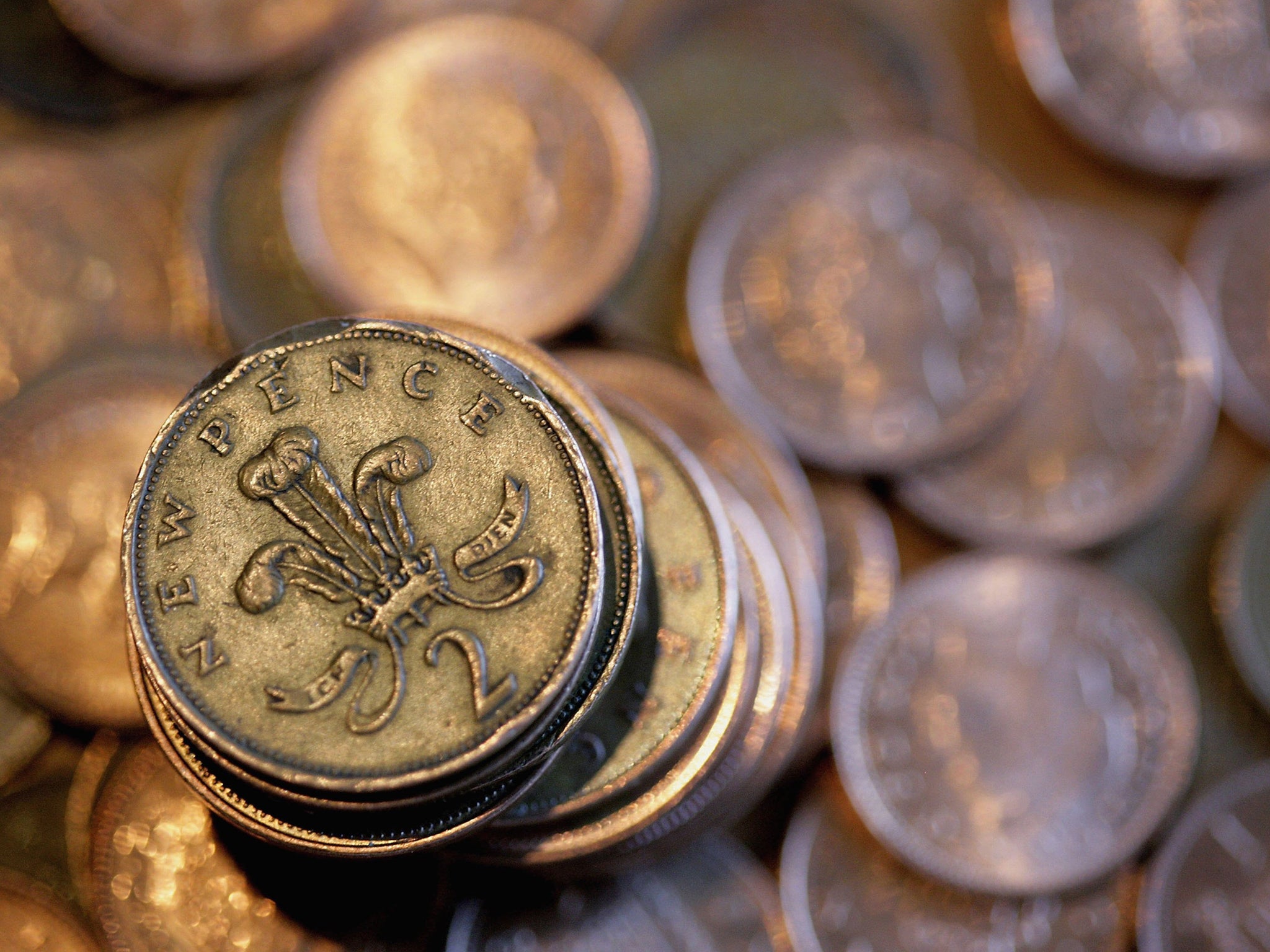Copper coins will not be scrapped, as Theresa May announces rapid Spring Statement U-turn

Your support helps us to tell the story
From reproductive rights to climate change to Big Tech, The Independent is on the ground when the story is developing. Whether it's investigating the financials of Elon Musk's pro-Trump PAC or producing our latest documentary, 'The A Word', which shines a light on the American women fighting for reproductive rights, we know how important it is to parse out the facts from the messaging.
At such a critical moment in US history, we need reporters on the ground. Your donation allows us to keep sending journalists to speak to both sides of the story.
The Independent is trusted by Americans across the entire political spectrum. And unlike many other quality news outlets, we choose not to lock Americans out of our reporting and analysis with paywalls. We believe quality journalism should be available to everyone, paid for by those who can afford it.
Your support makes all the difference.Copper coins will not be scrapped, Theresa May has announced, in one of the fastest U-turns in the history of Budget statements.
The Government has backtracked in just 24 hours, after the surprise threat to 1p and 2p coins announced by the Chancellor, Philip Hammond, was strongly criticised in some newspapers.
The Prime Minister’s spokesperson acknowledged a backlash to the move, saying “the current denominational mix of coins meets the public’s needs”.
As part of the Spring Statement, the Treasury announced a consultation into the use of cash in the “new economy”, where more and more people were making digital payments.
It pointed out that around 60 per cent of 1p and 2p coins are believed to be used just once before they are put into saving jars, with around 8 per cent being thrown away.
The Royal Mint needed to produce more than 500 million 1p and 2p coins each year to replace those that fall out of circulation, it said – clearly raising the prospect that they would be phased out.
But the move was greeted with derision by several newspapers, some warning that charity collections would be hit and one branding Mr Hammond, the “pennies pincher”.
Phil Mussell, the director of Coin News magazine, told the Daily Mail: “It’s a great shame that we are getting rid of 1,000 years of history just because some politicians don’t like it.”
Asked about the controversy, the spokesperson killed off the idea, saying: “There are no proposals to scrap one or two pence coins in the consultation.
“The call for evidence is simply intended to enable the Government to better understand the role of cash and digital payments in the economy.
“One thing the Treasury were seeking views on was whether the current denominational mix of coins meets the public’s needs. From the early reaction, it looks as if it does.
“The Government welcomes the contribution to the debate and will respond fully when the call for evidence closes.”
It is the second time that an attempt to kill off 1p and 2p coins has been abandoned, after David Cameron blocked an earlier suggestion by George Osborne – fearing public opposition.
Launching its consultation on Tuesday, the Treasury argued that having large numbers of denominations did not “contribute to an efficient or cost-effective cash cycle”.
People are increasingly moving away from cash. In 2006, just over 60 per cent of all payments were made using cash, but this was predicted to fall to just 21 per cent by 2026.
The document also appeared to pave the way for scrapping £50 notes, noting that while there is “significant” overseas demand, there is a perception that they are used for money laundering, tax evasion and other criminal activities.
Join our commenting forum
Join thought-provoking conversations, follow other Independent readers and see their replies
Comments